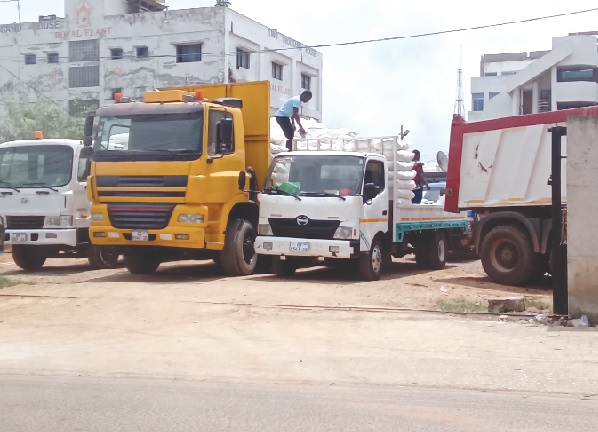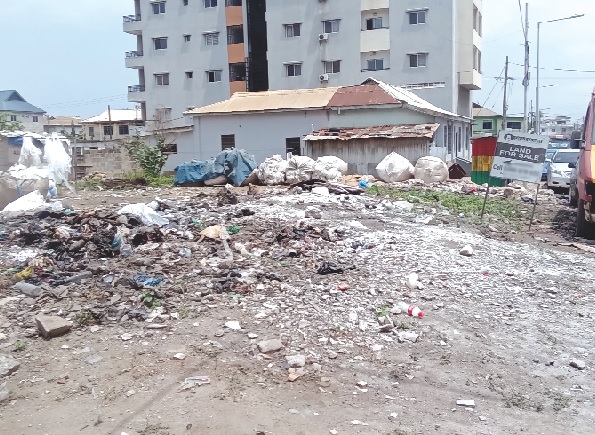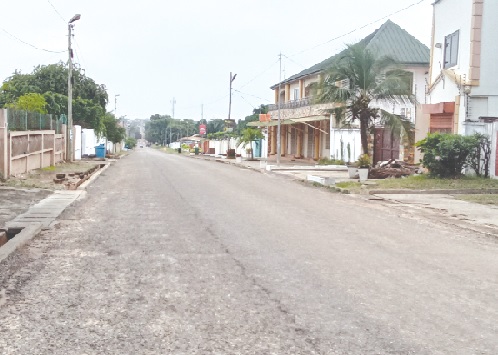The selling of family houses to corporate institutions, groups and individuals in many of the Ga communities has, in recent times, become a trend, rendering many young people homeless.
The practice, according to some Ga traditional leaders, could be attributed to greed and protracted litigation among some families.
They said some family members tend to secretly will family homes specifically to their children, and that had led to years of litigation.
The Vice-President of the Otublohum Divisional Council Ga Traditional Area, Nii Amoo III, who shared his thoughts with The Mirror on the subject in Accra last Thursday, said considering the severity of some of the litigations, some of the families felt the best solution was to sell the houses and share the proceeds among family members.
Communities
A visit by The Mirror to Teshie-Nungua, Adabraka, La, Osu, Asylum Down and Kokomlemle in the past week revealed that the trend was very common in those communities.
Nii Amoo III confirmed that the practice was on the increase in Adabraka, for instance, because a lot of businesses were springing up.
In that regard, he was of the view that in a few years, Adabraka would become a commercial area like Okaishie in the Central Business District of Accra.
Nii Amoo said Adabraka, which extended to Asylum Down, was very big and, therefore, the trend was widespread.
He said it was the construction of the Accra Psychiatric Hospital that changed the name of that part of Adabraka to Asylum.
While he admitted that the practice was a cause for concern, Nii Amoo also observed that many houses in Adabraka were being demolished and rebuilt as warehouses, pharmacies and banks.
He said the subject had come up on various platforms for discussion, "but our hands are tied since we cannot meddle in such family affairs".

"It is their family houses, and if they are selling or leasing them out, there is nothing traditional leaders can do," he stated.
Nii Amoo III, who doubles as the Otublohum Dzasetse (kingmaker), took The Mirror through the nitty gritty of the transactions and said land in Adabraka, for instance, sold between GH¢200,000 and GH¢300,000 a plot.
“If there is a building on the land, then that is big money because some families sell such property in dollars," he said.
New houses
Although the sellers may have lost a home with all the most cherished history and family ties, he said many made very good use of the proceeds by building in newly developed communities such as Pokuase, Amasaman or Sapeiman.
Nii Amoo III noted that the sale affected family history and traditions, and encouraged heads of families to be measured and tactful when making such decisions.
"Think of the future of the unborn children, where you are going to have family meetings, child naming, marriage and funerals. As opinion leaders, we can only create awareness of its effect on the family," Nii Amoo said.
A landlady at Adabraka, Madam Helena Lamptey Ferguson, attributed the decision to sell off family houses to what she described as "unworkable family misunderstandings".
Court cases
Madam Ferguson said there was a court case on house ownership in her family that had dragged on for over 30 years.
She said the back and forth had persisted to the extent that those who filed the court case had even passed on.
To Madam Ferguson, it was always best to sell for peace to reign.
She expressed concern about abandoned family houses and noted that some were currently empty and in bad shape; hence, the urge to sell them off.
Adabraka Manye
Sharing her experience in an interview at her residence last Saturday, Adabraka Manye, Naa Korkor Aadzieoyi I, attributed the practice to greed and misunderstanding among families.
She said her position was that if families wanted to sell their houses, they must sell portions, use the proceeds to rebuild the old structure and reunite the family.
She said the sale of family houses had affected family meetings and other forms of reunion among Ga people, especially during the Homowo festival, because many have no place to meet as a family.

"And when you allow the meetings to be held in your home, soon some will declare that house as their family house, and that is likely to bring misunderstandings between your children and other family members in future. So l encourage rotation of such family meetings. If we have the meeting at my house today, the next time we do it at another person's house," she explained.
The queenmother said it was important for Ga chiefs to use this year’s Homowo festival to encourage as many people as possible to visit their family homes.
She said they must also drum home the message that they must desist from selling family houses.
Situation at Osu
At Osu, for instance, checks by The Mirror showed that the practice was a bit different from what pertained in Adabraka.
It was clear that families in Osu were not handing over their entire family houses to buyers.
The Mirror gathered that families struck a deal with potential clients to demolish, rebuild and share or lease.
A resident of Osu, Mr Humphrey Hammond, told The Mirror that " they can sell only the frontage of the house or let investors build half of the property into shops or rented apartments and then develop the other half for the family, so the family house will still be there in addition to making some money."
Situation in Teshie
In Teshie, many of the residents explained that selling family houses was not rampant.
However, a resident, Nii Sowa, said some of the occupants of the Teshie-Nungua estates, who had lost their parents, usually sold off the family houses.
Many residents in the respective communities who spoke to The Mirror also expressed grave concerns about the practice, saying the sale of family houses had affected child upbringing within Ga communities.
To some of the residents, it had rendered them homeless, such that many begged others to use their compounds for social events like naming ceremonies and funerals.
Writer's email:lydiaezit@gmail.com

